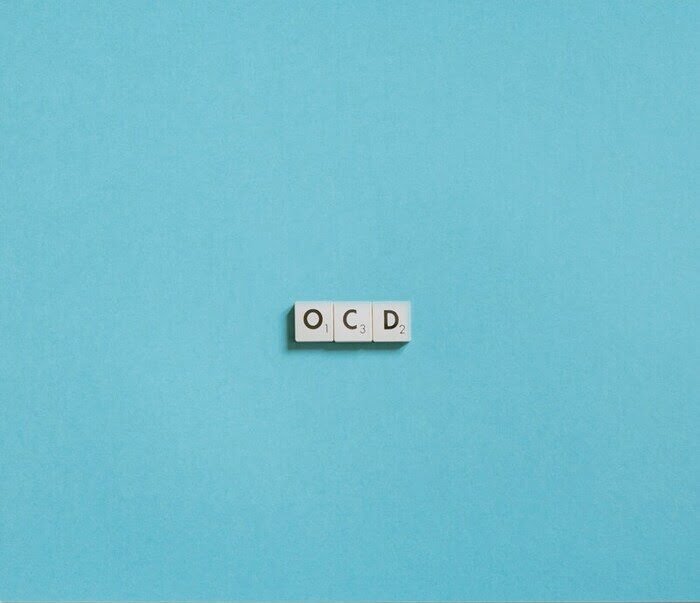How to Recognise the Signs of OCD: Beyond the Common Stereotypes
Obsessive-Compulsive Disorder (OCD) is a multifaceted mental health issue that goes beyond the widely held stereotypes of extreme cleanliness and precise orderliness.
Understanding OCD
Obsessive-Compulsive Disorder (OCD) is a mental health condition that manifests through a combination of obsessions—unwanted, intrusive thoughts that trigger distress—and compulsions, which are repetitive actions or mental rituals performed in an attempt to alleviate this distress. These obsessions and compulsions can significantly disrupt daily activities and quality of life, making it essential to understand the nuances of the disorder.
Far from mere habits or preferences for cleanliness, OCD symptoms cause significant anxiety and disrupt daily life. It's crucial to differentiate between normal behaviours and the excessive, risk-disproportionate symptoms of OCD, which are key to early recognition and effective management of the disorder. Understanding OCD in depth is the first step towards offering support and empathy to those affected.
Beyond Stereotypes: Recognising Diverse OCD Symptoms
Moving beyond the common stereotypes of OCD as merely an obsession with cleanliness or order, it's essential to recognise the condition's diverse symptoms. These can vary widely among individuals and may include:
-
Mental Compulsions: Not all compulsions are visible; some involve silent counting, praying, or repeating words in one's mind.
-
Intrusive Thoughts: These can be of a violent, sexual, or sinful nature, causing significant distress due to their misalignment with personal values.
-
Avoidance Behaviours: Individuals may avoid certain places or situations to prevent triggering their OCD symptoms.
-
Symmetry and Exactness: Beyond simple preference, a need for things to be "just right" can consume hours of a person's day.
Mental Compulsions: The Invisible Battle
One of the less visible yet profoundly impactful aspects of Obsessive-Compulsive Disorder (OCD) involves mental compulsions. Unlike the compulsive behaviours commonly associated with OCD, such as excessive cleaning or checking, mental compulsions occur within the mind. These can include:
-
Silent Repetition: Repeating words, numbers, or phrases silently to prevent or neutralise perceived harm.
-
Mental Counting: Counting to a specific number before performing tasks to avoid bad outcomes.
-
Internal Rituals: Performing rituals in one's mind to alleviate the anxiety caused by obsessions.
These invisible compulsions are a significant part of the struggle for many individuals with OCD, often going unnoticed by others. The battle against OCD is not only about the actions one can see but also about the hidden mental rituals that consume much time and mental energy.
Intrusive Thoughts: Understanding the Unwanted Guests
Intrusive thoughts are unwelcome, often distressing thoughts or images that suddenly appear in the mind, a common symptom of Obsessive-Compulsive Disorder (OCD). Unlike the general worry we all experience, these thoughts can be intense and frightening, covering themes of harm, contamination, or taboo subjects. Key aspects include:
-
Nature of Thoughts: These can involve fears of causing harm to loved ones or oneself, fears of contamination, or other taboo topics that starkly contrast with the individual's values or character.
-
Reaction to Thoughts: The intense distress and anxiety these thoughts provoke lead to compulsive behaviours or mental acts aimed at neutralising the discomfort.
-
Misinterpretation: A common challenge is the misinterpretation of these thoughts as indicative of hidden desires or intentions when, in fact, they are the opposite of the individual's true self.
Understanding that intrusive thoughts are a symptom of OCD and not reflective of one's character is crucial. Recognising this can alleviate the shame and isolation felt by those affected and encourage seeking help. These "unwanted guests" in the mind are manageable with the right therapeutic approaches, highlighting the importance of awareness and professional support.
Seeking Professional Help for OCD: Why It's Essential
The journey towards managing Obsessive-Compulsive Disorder (OCD) begins with acknowledging the need for professional support. Early diagnosis and a customised treatment approach, often involving Cognitive Behavioural Therapy (CBT) with Exposure and Response Prevention (ERP), can markedly improve one's quality of life. However, stigma or misunderstanding about OCD symptoms can delay this crucial step.
At Resilient Wellbeing Clinic, we offer a compassionate and expert service tailored to each individual's needs. Our dedicated team is committed to guiding you through every step of your journey towards recovery, providing a supportive environment where you can openly discuss your experiences and challenges.
By choosing Resilient Wellbeing Clinic, you're not just seeking help; you're taking a decisive step towards regaining control over your thoughts and actions, with professional guidance paving your path to recovery.

